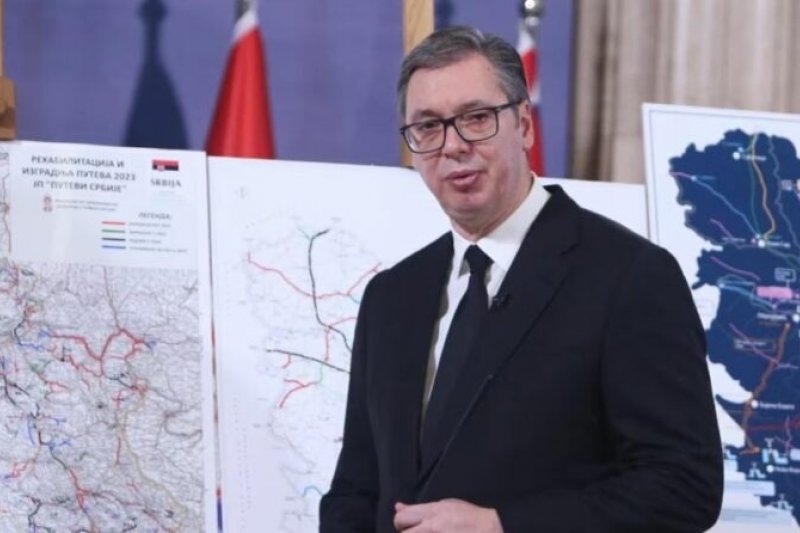Serbian President Accuses Kosovo of Arming Itself Illegally
President of Serbia, Aleksandar Vucic accused the Western powers of arming the Kosovo Security Force and the opposition and pro-opposition media in Serbia of being at the service of these powers.
During an event in Belgrade, he said that he is thinking about "how to start investigations into the arming of the so-called Kosovo Security Force and those who are assisting in this arming, in violation of Resolution 1244. I want to investigate who violated it The Charter of the United Nations, and how they dared to do that... I am thinking how not to bring the country into a difficult position and at the same time preserve international law", he said.
Earlier this month, the US State Department approved the possible sale of Javelin missiles to Kosovo, with a value of 75 million dollars.
"This proposed sale would support the foreign policy and national security objectives of the United States by improving the security of a European partner who is an important force for political and economic stability in Europe," the State Department said, according to whose sale will not change the military balance in the region.
The Serbian president, who had called the announcement "a big disappointment for Serbia", attacked the pro-opposition media and the opposition in Serbia that "they don't want to know what foreigners and Albanians are doing to Serbia".
"You are interested in how to punish Serbia, because some Serbs wanted to protect their hearths", said the Serbian president when asked by journalists about the events in the village of Banjska in the north of Kosovo on September 24 last year, when a group armed Serbs attacked the Kosovo police, killing one officer and injuring two others.
Kosovo has accused Belgrade of organizing and arming the group, but Belgrade denies being involved in it.
The responsibility for the attack was taken by Milan Radoicic, former vice president of Lista Serbe, the main party of Kosovo Serbs, which was founded and supported by Belgrade.
The incident was considered one of the most serious since Kosovo declared its independence in 2008, prompting the concern of Western diplomacy for stability in the region and calls for the perpetrators to be brought to justice.
Authorities in Serbia detained Milan Radoicic a few days after the attack on charges of "association for the purpose of committing criminal acts, production, possession, possession and trafficking of firearms and explosives, and serious crimes against public security". However, he was later released on the condition that he not leave Serbia, and was forbidden to go to Kosovo. After the September 24 attack, the Kosovo police found a large amount of weapons in the village of Banjské.
The Serbian president said that the members of the group have committed criminal acts and will answer, but "when I see what weapons are being talked about... they say there were pistols, rifles, hand rocket launchers. Well, wait… you brought the 'Javelin' all illegally… And you don't answer. You can do it. You are big and powerful and you have your servants here (in Serbia) from the political ones to the media...", said the Serbian president.
In December 2018, the Parliament of Kosovo approved the law for the transformation of the Security Force into the Kosovo Army, a process that will last 10 years and will not replace the NATO forces that continue to have around 5 thousand peacekeeping troops in Kosovo, several hundred of whom are Americans.
The number of NATO troops was increased after September 24 amid Western concerns that Russia may try to destabilize the Balkans to distract attention from its aggression in Ukraine. After the attack, Western diplomats made new efforts to do so
accelerated the process of normalization of relations between the two countries.
The Government of Kosovo is required to establish the Association of municipalities with a Serbian majority, while the Government of Serbia fulfills the obligations leading to the de facto recognition of Kosovo. Belgrade has emphasized that it will not implement anything that leads to the recognition of Kosovo, the VOA reported.













